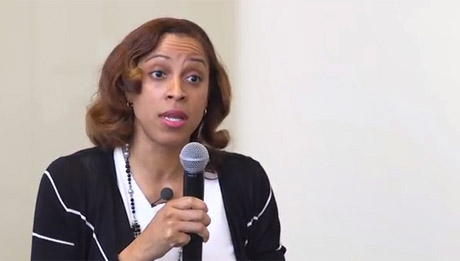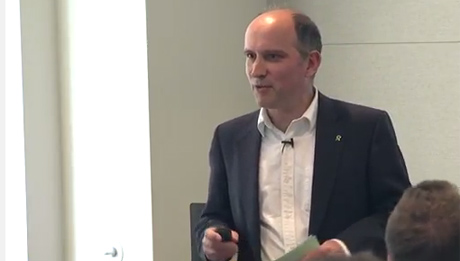Community Impact Week: The Fight For Educational Equity
Thursday, June 9, 2016Access to education improves people’s lives. Education enhances outlook and fuels ambition, and degrees and certifications open doors to opportunity. Education is also crucial to breaking cycles of poverty, yet it is an area where many communities are underserved—in the United States and in many other corners of the world.
Supporting schools and education nonprofits and institutions has long been a key pillar of Morgan Lewis’s global pro bono and community service program. “Education and opportunity are synonymous in today’s interconnected world,” said Morgan Lewis partner Amanda Smith, strategic leader of our firm’s extensive, award-winning pro bono practice.
To mark the firm’s commitment to the power of education, this year’s annual Community Impact Week (June 6–12) makes supporting education its central theme. Lawyers and professional staff come together to celebrate our ongoing efforts to make a difference in the lives of the underserved by supporting students, schools, and education nonprofits in their missions.
“Community Impact Week is an opportunity for us to celebrate and deepen our commitment to the organizations that foster educational development throughout our global community and to the people they serve,” Amanda said in a press release announcing the program.
IMPACT WEEK HITS NEW HIGH
Now in its seventh year, Morgan Lewis’s Community Impact Week is more robust than ever. The program involves more than 150 events in 24 offices around the world, giving our teams—from Dubai, London, and Singapore to Silicon Valley, Pittsburgh, Houston, and New York—the opportunity to give back. Throughout the week, we participated in book drives and school and library rehabilitation programs, as well as provided free legal services to nonprofit and charitable organizations.
We also explored new ways that lawyers and law firms can support education institutions around the world through legal trainings, local clinics, and presentations from thought leaders in education. We hosted leading lawyers from Teach For America—which, apart from public schools themselves, is the largest education nonprofit in the United States—and Oxfam International, a leading humanitarian aid organization that operates across more than 90 countries worldwide. The visiting lawyers discussed how the legal profession can support education institutions worldwide and ways to mobilize lawyers and law firms in the fight to improve educational opportunities for the underrepresented.
WHERE LAWYERS CAN HELP MOST
Tracy-Elizabeth Clay, Teach For America’s general counsel, shared her thoughts about the organization’s growth and evolving legal needs and the various new fronts where lawyers can play a defining role in support of education, including the provision of legal guidance for the large number of educational nonprofits operating in the sector today.
“Our vision is that one day, all children should be able to attain an excellent education,” Tracy-Elizabeth said. “Despite the fact that we are the wealthiest country in the world, where you are born, your zip code is still largely educational destiny, it determines the quality of schools that you go through.”
LEVELING THE PLAYING FIELD
Joss Saunders, Oxfam’s general counsel and a UK native, spoke about working as a high school teacher in Uganda in the 1980s, where the list of challenges included no running water, limited electricity, and just seven textbooks shared among his 60 English-language students. “This isn’t a level playing field,” Joss recalled. “This education system isn’t the same as the education system that I grew up with—my 20 years’ investment in education.”
Joss said that things have improved hugely in Uganda since then. And he believes lawyers in advanced countries can do much to help “level the playing field” globally. He pointed to areas of success, such as litigating for children’s legally enforceable rights to education, sanitation, and a legal identity in India, Nepal, South Africa, and Latin America.
“I’d just like to leave you with a thought,” he said in closing. “What investment have you had in your education, and what can you give back for the education of other people?”

